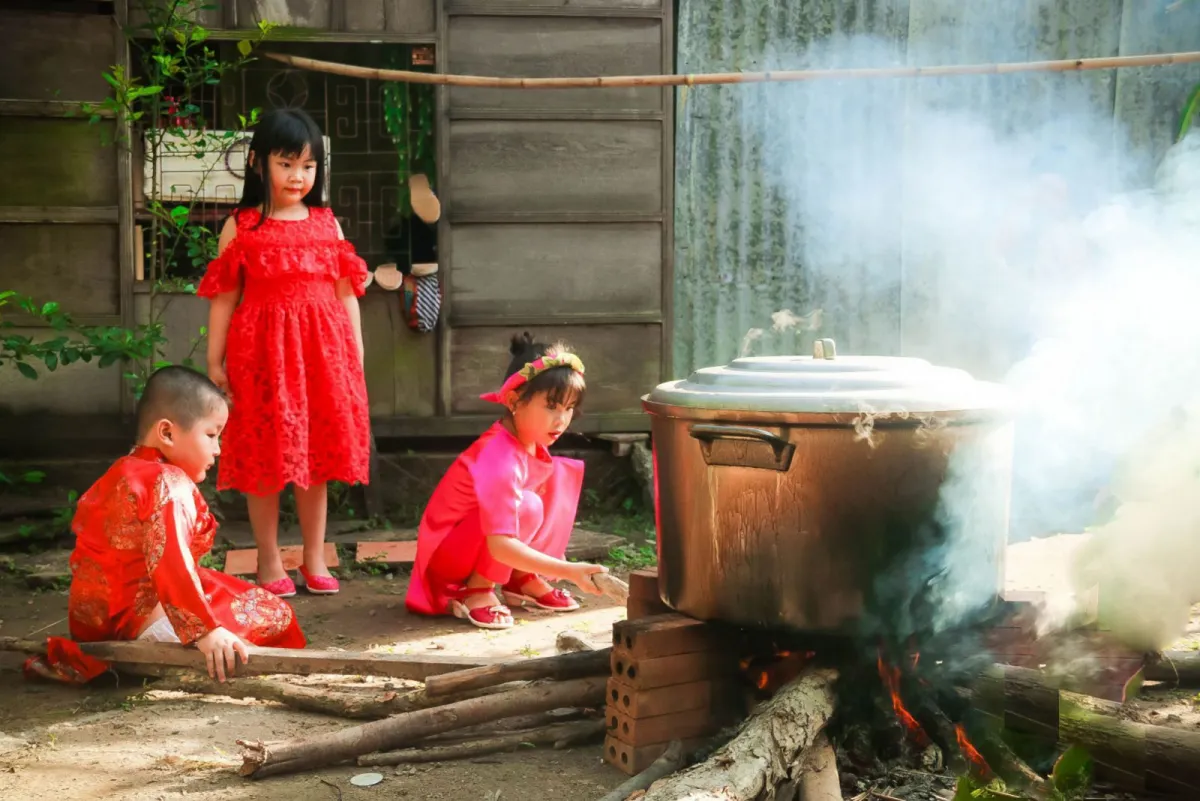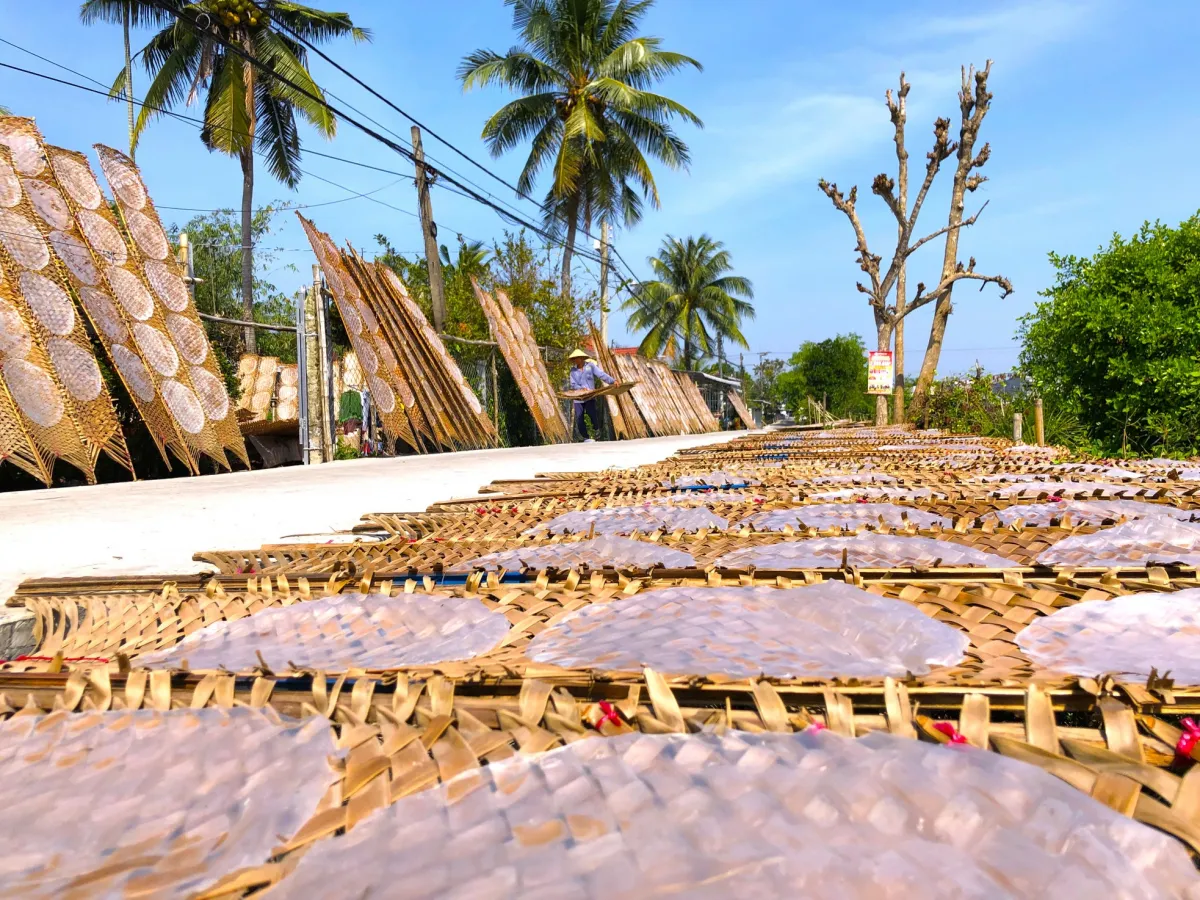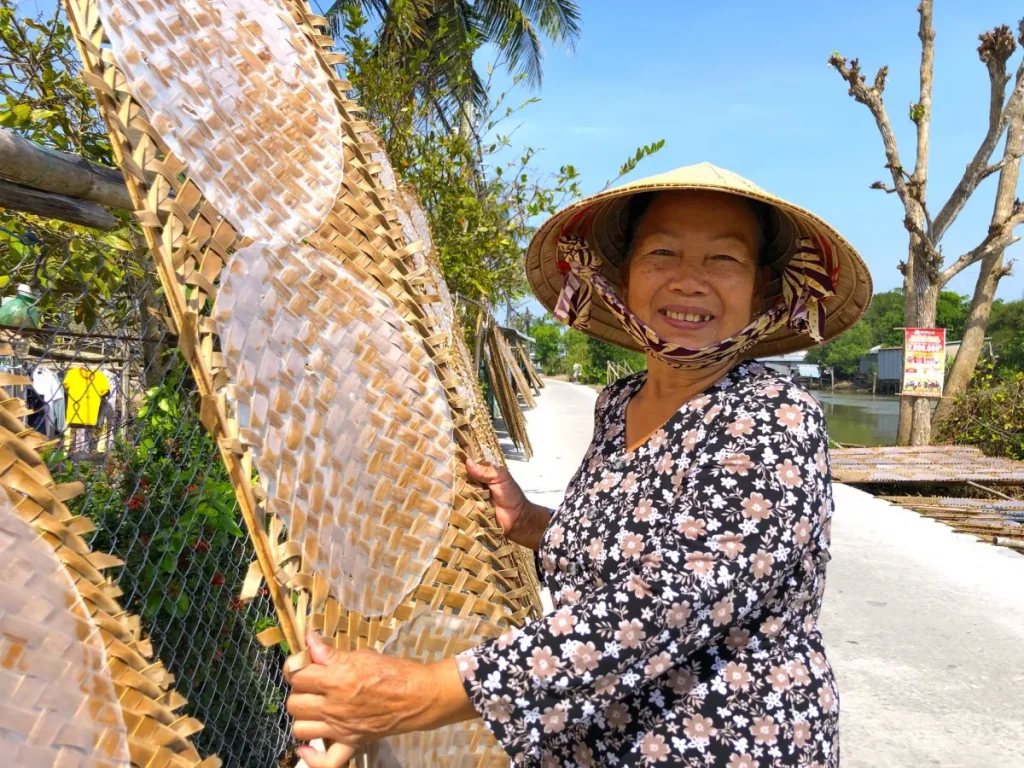My Long Rice Paper - A Ben Tre Specialty That Captivates Visitors
The gentle Mekong Delta is famous not only for its fruit orchards laden with fruits and beautiful natural landscapes but also for its unique culinary culture, which is rich in the flavors of the homeland. Among them, it is impossible not to mention My Long rice paper, a Ben Tre specialty that has become the soul of the Mekong Delta cuisine, captivating countless visitors from near and far.
My Long Rice Paper Village - Where Traditional Essence is Preserved
The My Long rice paper village is located in My Long commune, Cao Lanh district, Dong Thap province, and has existed and developed for many generations. Almost every house is associated with making rice paper, creating a peaceful village picture filled with the aroma of new rice.
The Journey of Preserving Traditional Flavors Through Generations

The craft of making My Long Rice paper has been passed down from generation to generation, preserving unique family secrets. The people of My Long are proud of their ancestors' traditional craft, considering it a precious heritage that needs to be preserved and developed.
Mekong Delta Village Tourism - Experience the Unique Rice Paper-Making Process
Today, My Long Rice Paper Village is a famous rice paper production place and an attractive Mekong Delta village tourism destination. Tourists here have the opportunity to witness firsthand the meticulous handmade rice paper-making process, from selecting rice, soaking rice, and grinding flour to drying the rice paper.
Rice Paper Making Process - A Combination of Experience and Dedication
To create delicious, flexible, and standard My Long rice paper, artisans must undergo a laborious process requiring skill, experience, and dedication.
Step 1: Selecting Ingredients - The Secret to Creating a Characteristic Flavor
Rice made for making rice paper must be fragrant, flexible, and even round grains. My Long people often use Nang Thom rice, Tai Nguyen rice, or Jasmine rice to create a characteristic flavor for their rice paper.
Step 2: Soaking and Grinding Rice - The Source of Refinement
The rice is washed, soaked in water for 4-6 hours to soften, and then ground into a smooth batter. The batter's fineness directly affects the rice paper's flexibility and toughness.
Step 3: Spreading the Batter - The Art of Skillfulness
The batter is thinly spread on a cloth stretched over a pot of boiling water. The artisan must be very skillful so that the rice paper has an even thickness and is not torn or punctured.
You may need or be interested in
Step 4: Drying the Rice Paper - Achieving Perfection
After spreading, the rice paper is dried under the sun until it becomes crispy. Natural sunlight and wind are essential factors in creating My Long rice paper's characteristic color and flavor.
My Long Rice Paper - A Hometown Gift Rich in National Identity
My Long rice paper is not just a rustic dish but also a hometown gift rich in national identity. The delicious, crispy flavor of the rice paper has conquered countless diners and has become a source of pride for the people of the Mekong Delta.
The Diversity in Enjoying My Long Rice Paper
My Long rice paper can be enjoyed in many different ways. It can be eaten directly, grilled and dipped in tamarind fish sauce, rolled with boiled meat and fresh herbs, or used as an ingredient in many other attractive dishes such as spring rolls, banh xo (Vietnamese crepes), and fried spring rolls.
My Long Rice Paper - The Beauty of Vietnamese Culinary Culture
My Long rice paper has become indispensable to Vietnamese culinary culture, enriching the country's culinary treasure. The image of pure white rice paper with the faint aroma of new rice symbolizes simplicity, rusticity, and a deep love for the homeland.
Conclusion

The life and craft stories of the Mekong Delta people associated with the My Long rice paper craft are stories about the love for their homeland and the preservation and development of the beauty of traditional culture. My Long rice paper is a delicious dish and the soul of the Mekong Delta cuisine, a source of pride for the people of Ben Tre in particular and the whole country in general.
